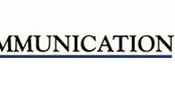

|
|
| Learn what to say... and what NEVER to say! |
|
|
Our PIE Model of Communication
|
Want Great Answers? Ask the Right Questions! By Edward Leigh, MA A hospital is dealing with a difficult patient. A bank experiences an upset customer. A parent is coping with an unruly child. Three challenging situations, however they could all be eased with the right questions. The right questions take us to the right answers, which ultimately leads to the right results. Questioning techniques are one of the best communication tools that we can use. Asking skillful questions leads to positive relationships, powerful teams and a meaningful dialogue to exchange information. These tips will help you ask the right questions! Keep it Objective Ask questions without preconceived notions of what you expect for an answer. An example of this type of question would be, "I just went to that new mall. I wasn't very impressed at all. I heard you have been there. What did you think of the place?" This question becomes more objective by simply stating, "They have opened a new mall on Main Street. What do you think of it? Closed vs. Open Questions Closed-ended questions are types of questions that can be answered with a single word/phrase or yes/no. Examples of these types of questions are: "Have you ever visited Disney World?" "What city were you born in?" "Did you enjoy the movie you saw last night?" We need to ask closed questions; these types of questions offer important information. However, if you want people to expand their answers, we need to ask open questions, which require elaboration. Open-ended questions begin with words like “who, where, what, why, when, and how. This is also an effective way to start with an open question, "Tell me more about..." I often see people asking closed questions when they should be asking open questions. On TV Shows I have viewed scenes of a very distraught person sitting in a room. Another actor will walk in and ask, "Are you OK?" That is a closed question, which is inappropriate in this setting. When a person is distressed we need to get more information. A better response would be (using an open question), "You seem very stressed now. Tell me what is going on." In a workplace setting, we want our customers/patients/clients (or what ever term we use) to open up to us, yet this often does not happen because we ask the wrong questions. We ask a closed question which "closes" our interaction. For example, let's say person walks into a sporting goods store and the sales representative says, "Can I help you?" People may say "No" or "I am just browsing." Let’s try the scenario again with an open question, "Hello, my name is Mary Smith. I am here to help you. What kind of items are you looking?" Use a Friendly Non-confrontational Style People respond if they are approached in a warm comfortable manner. When asking questions, no matter how tense the situation, we must keep our composure. Your tone should be polite and inquisitive, never argumentative or accusatory. If you are faced with two arguing coworkers, it would be counter productive to angrily say, "What is the problem here? Why can't the two of you get along?" We must be clam and try this question, "I do understand both of you are very upset. Let's talk about how we can manage this situation. Tell me what is happening." Before asking questions, we must also think about how our question could come across. Are we putting people down? Are we judging people? Belittling people? For example, let's say you are talking to a person in an organization and you are unsure if they are the ultimate decision maker. We do not want to ask, "Are you the decision maker?" What this question sounds like is, "Are you important?" Rather, we could ask, "Is there anyone else you need to speak with before a decision could be made?" When it comes to very sensitive topics, like illness or family problems, how we ask questions is very critical. For example, when talking to a friend who is ill, we should not probe into their medical history. I would not say, "I understand, you just got back from the hospital. What did the doctor say? How is your blood work? What about the CT scan?" Let them say what they feel comfortable in sharing. This is a better question: "I understand you just returned from the hospital. How you are doing." Do Your Homework Before I present a program, I do careful research. I ask questions. One of the questions I ask, "Are their issues I should be aware of? I will sometimes have clients say to me, "In your speech, please do not discuss..." By asking the right questions, I learn what is acceptable. Before we meet a person, asking the right questions can help establish a positive relationship. For example, let’s say you work in a medical office and a new receptionist is coming to work in the practice. We could say to a co-worker, "I understand Barbara Jones will be our new receptionist. Just to make sure we start off on the right foot, tell me Barbara? What should I be aware of?" You may find Barbara loves yellow roses, so a vase with yellow roses would be an ideal welcome item. You may also discover Barbara tends be quiet, not because she is cold, rather she is shy. However, when she feels at ease, she opens up. This also tells you that creating a positive environment will help Barbara feel more at ease to share with other people. Ask Yourself the Right Questions The questions we ask ourselves have a direct impact on the quality of our lives. Negative questions lower our feeling of self worth; such as, "What am so I sad? Why don’t things work out for me? Why can’t I get it right?" We need to reframe our internal questions, such as, "What can I do to energize myself? What uplifting people in my life should I contact to feel better? What book can I read or CD can I hear to help me feel better?" |
The Center for Healthcare Communication • P.O. Box 18819 • Cleveland, Ohio 44118-0819 USA Site designed by I Am Orange Media Group |